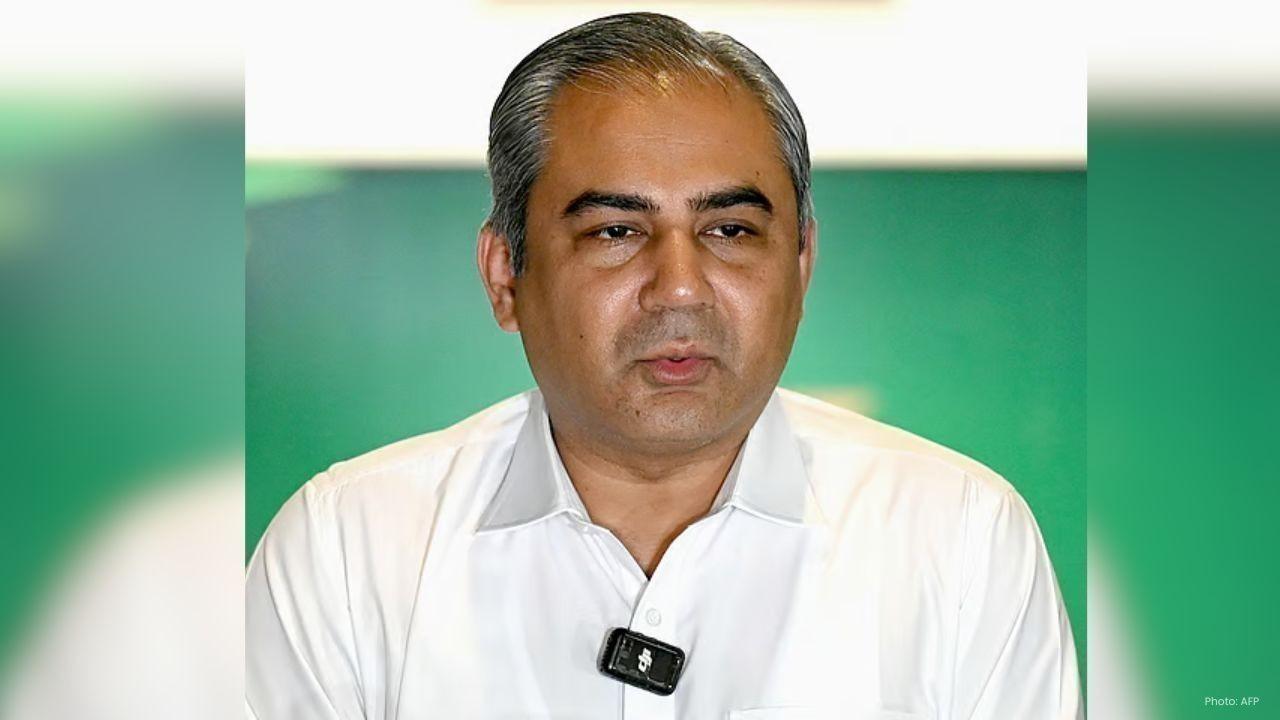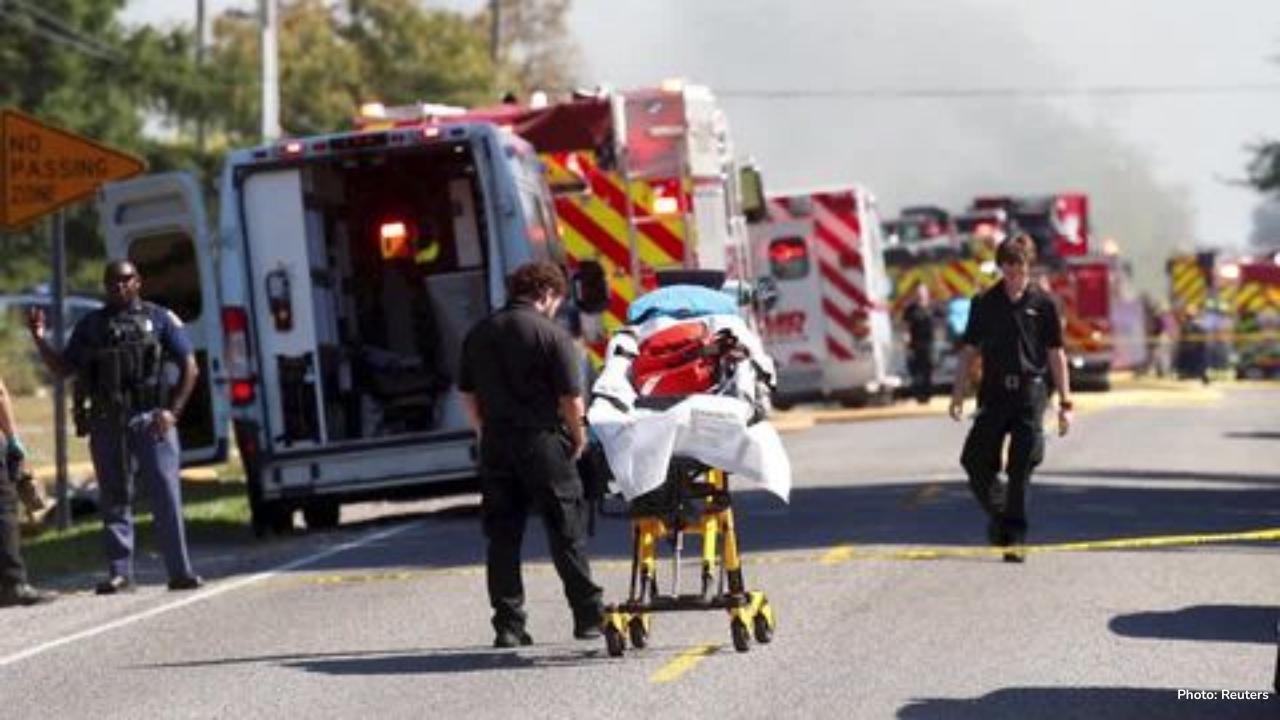
Post by : Monika
On September 26, 2025, U.S. President Donald Trump spoke about ongoing efforts to address the Gaza conflict during a series of meetings with leaders from Middle Eastern countries. Trump emphasized that these discussions are intense and productive, and that both Israel and Hamas are aware of the talks. He described the negotiations as inspired by the urgent need to reduce violence in Gaza and find a lasting solution to the ongoing crisis.
Background of the Gaza Conflict
The Gaza conflict escalated significantly in October 2023 when Hamas launched a large-scale attack on Israel. This attack led to the deaths of over 1,200 Israelis and the kidnapping of more than 250 civilians. In response, Israel launched extensive military operations in Gaza.
The conflict has caused massive destruction, resulting in thousands of casualties, the displacement of families, and widespread damage to infrastructure.
Efforts to reach a ceasefire have repeatedly failed. A previous attempt in March 2025 broke down after an Israeli strike killed around 400 Palestinians. Since then, the humanitarian situation has worsened. Hospitals are overwhelmed, food and water are scarce, and many families live in temporary shelters. International organizations have repeatedly called for immediate humanitarian aid and protection for civilians.
Trump’s Role in the Talks
President Trump has been actively engaging with Middle Eastern leaders to find a solution to the Gaza crisis. He said that discussions are ongoing and “intense,” highlighting the seriousness of the situation. These talks involve countries across the region, including some Muslim-majority nations that have close ties to both Israel and the Palestinians.
Trump’s administration, through his special envoy Steve Witkoff, introduced a 21-point peace plan during these discussions. This plan focuses on reducing violence, protecting civilians, and working toward a sustainable solution. Although Trump did not disclose the full details of the plan, he described it as designed to promote de-escalation and lasting peace in the region.
International Support and Diplomatic Efforts
The Gaza conflict has drawn global attention, with many countries participating in efforts to mediate and resolve the crisis. Turkish President Tayyip Erdogan confirmed that he and Trump reached an understanding during their meeting at the White House. Both leaders agreed on the urgent need to stop the violence in Gaza and work toward lasting peace.
Erdogan emphasized the importance of ceasefire negotiations and praised Trump’s commitment to facilitating dialogue. Both leaders also reportedly agreed that the two-state solution—allowing Israel and Palestine to exist as separate nations—is the most realistic path toward long-term peace.
Palestinian President Mahmoud Abbas also expressed willingness to collaborate with global leaders, including Trump, Saudi Arabia, France, and the United Nations, to implement a peace plan backed by the UN General Assembly. This initiative is based on a seven-page declaration from a UN-hosted international conference in July 2025, which aims to end the Gaza conflict while supporting Palestinian self-determination and security for Israel.
Challenges to Peace
Despite international efforts, the path to peace remains complicated. The conflict is rooted in decades of political, religious, and territorial disputes. Deep mistrust between Israel and Hamas, as well as divisions among Palestinian factions, makes negotiations difficult.
Trump acknowledged these challenges, saying that the process requires patience, persistence, and careful diplomacy. He noted that previous attempts at ceasefires failed due to mistrust and violations of agreed terms. Trump highlighted that the current talks are more inclusive and aim to involve multiple stakeholders in the region.
The international community is divided on how to proceed. Some countries support a strong stance against Hamas, emphasizing Israel’s right to defend itself. Others focus on humanitarian concerns and the protection of civilians in Gaza. This division complicates the negotiation process and slows down the implementation of peace measures.
Humanitarian Concerns in Gaza
The humanitarian situation in Gaza remains a major concern. Thousands of civilians have been killed or injured since the conflict escalated. Hospitals and clinics are overwhelmed, and medical supplies are running low. Families displaced by the fighting struggle to find shelter and basic necessities like food and clean water.
Trump stated that part of the ongoing discussions with Middle Eastern countries is to provide humanitarian aid and improve conditions for civilians. While the details are limited, it is clear that the peace plan includes measures to protect non-combatants and provide relief to affected communities.
International organizations, including the Red Cross and the United Nations, have called for immediate access to Gaza to deliver aid. They stressed that protecting civilians is as important as achieving a ceasefire.
The Role of Middle Eastern Countries
Middle Eastern countries play a crucial role in these negotiations. Many nations in the region have historical, political, and religious ties to both Israel and Palestine. Their involvement is essential for building trust and ensuring that agreements are respected on the ground.
Countries such as Saudi Arabia, Egypt, and Qatar have actively participated in diplomatic efforts, offering to mediate and support peace initiatives. Trump’s meetings with these leaders show the U.S. commitment to multilateral cooperation in resolving the Gaza crisis.
By involving multiple stakeholders, the hope is to create a balanced approach that considers the security of Israel while also protecting Palestinian civilians and addressing long-standing grievances.
Trump’s 21-Point Peace Plan
Although Trump did not release the full details, the 21-point plan reportedly includes the following key measures:
The plan also focuses on building confidence between parties, addressing grievances, and involving international organizations like the UN to oversee its implementation.
Reactions from Israel and Hamas
Both Israel and Hamas are aware of these talks. Israel’s government has welcomed diplomatic efforts while continuing military operations to ensure national security. Israeli leaders have emphasized that any agreement must guarantee the safety of their citizens.
Hamas, on the other hand, has been cautious. While it has expressed willingness to participate in talks indirectly through intermediaries, it remains skeptical of Israel’s intentions. The ongoing humanitarian crisis in Gaza and past failures in negotiations have created deep mistrust between the parties.
The Importance of International Cooperation
Trump stressed that international cooperation is critical to resolving the Gaza conflict. Involving regional powers, the United States, the United Nations, and other key players ensures that any agreement has broader support and a higher chance of being implemented effectively.
He noted that peace in Gaza is not only a regional concern but also a global responsibility. The conflict affects international trade, security, and political stability, making it essential for multiple nations to work together.
Next Steps and Expectations
The talks are ongoing, and Trump emphasized that they will continue until meaningful progress is made. The next steps include:
While there is optimism about these negotiations, it is clear that achieving a lasting peace will be challenging. Past failures, political tensions, and the complexity of the conflict mean that patience and sustained effort are required.
President Trump’s announcement on September 26, 2025, highlighted the intense and ongoing efforts to address the Gaza conflict through diplomacy. His meetings with Middle Eastern leaders, the introduction of a 21-point peace plan, and coordination with international partners show a concerted effort to de-escalate violence, protect civilians, and work toward a long-term resolution.
The talks reflect the challenges of balancing Israel’s security needs with humanitarian concerns in Gaza. While obstacles remain, the involvement of regional and international actors increases the chances of success. As Trump said, these discussions are “inspired and productive,” signaling a hopeful approach to ending a crisis that has affected thousands of lives.
The world now watches closely as negotiations continue, hoping for a ceasefire, protection for civilians, and a roadmap to peace that can eventually lead to stability in Gaza and the broader Middle East.
Donald Trump Gaza conflict Middle East talks










Sinner & Swiatek Shine at China Open: Semifinal Spots Secured
Jannik Sinner and Iga Swiatek advance to the semifinals at the China Open. Read about their victori

Michigan church attack kills 4, injures 8 in shocking violence
A gunman drove into a Michigan church, fired shots, set fire, killing 4 and injuring 8 before police

Moldova’s Pro-EU Party Secures Majority in Key Vote
Moldova’s pro-European PAS wins a strong majority in the parliamentary election, weakening pro-Russi

Gabriel’s late header gives Arsenal 2-1 win at Newcastle
Arsenal snatch dramatic 2-1 win at Newcastle as Gabriel heads the winner in stoppage time; Merino eq

Air France Flight 447 Trial Opens 16 Years After Tragic Crash
Sixteen years after the Air France Flight 447 crash, a trial opens against Air France and Airbus. Le

Europe close to Ryder Cup win after strong weekend play
Team Europe is on the verge of winning the Ryder Cup, showing great form in Italy and needing only a